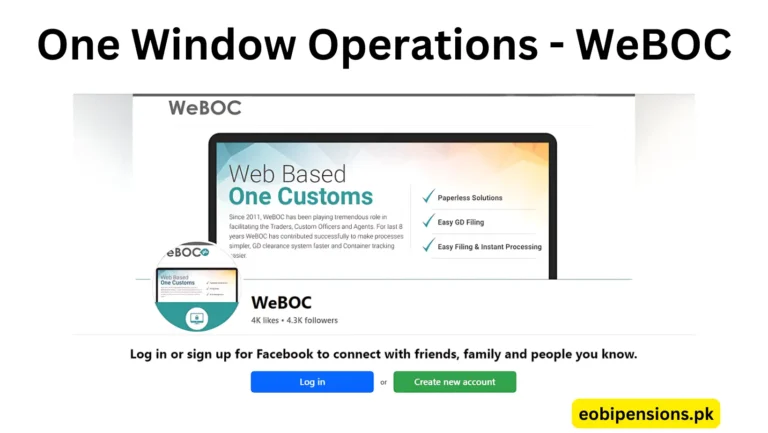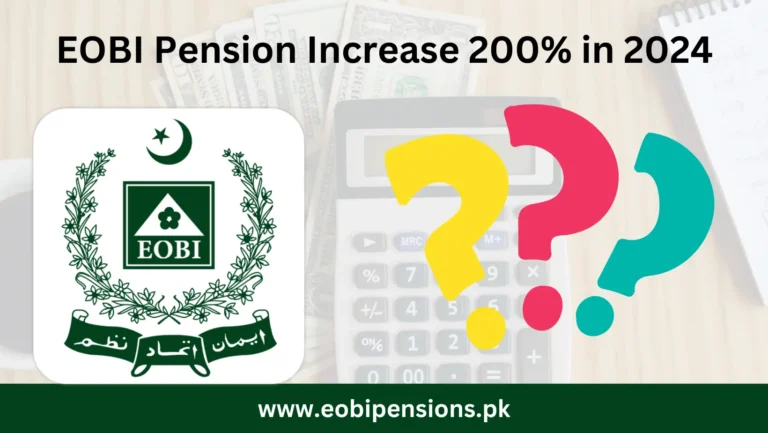EOBI Case Decision | Islamabad High Court Rules in Favor of EOBI Employees

In a significant ruling today, EOBI Case Decision announced by Justice Mohsin Akhtar Kiyani of the Islamabad High Court (IHC) on Writ Petition No. 3202/2022 titled “Ch. Muhammad Ashraf etc. vs. EOBI etc.”
The petition, filed by Lateef But and Ch. Muhammad Ashraf, questioned the salaries and allowances of employees at the Employees’ Old-Age Benefits Institution (EOBI). The court decided to reject the petition and rule in favor of the EOBI employees, bringing relief to many who have been under scrutiny.
Understanding the Case
The case began when Lateef But and Ch. Muhammad Ashraf filed a writ petition against EOBI, claiming that the institution’s employees were receiving salaries and other allowances that they did not deserve. Their demands for payment reviews and adjustments were a key issue leading up to the EOBI case decision announcement.
This issue raised many questions about the fairness of compensation within government institutions and whether public funds were being used wisely. It also brought to light the broader issue of how employees’ contributions and work are valued in such settings.
The Court’s Decision
Today, EOBI case decision announced by Justice Mohsin Akhtar Kiyani made a decisive announcement. After reviewing the arguments and evidence presented, the IHC decided to reject the writ petition, ruling in favor of the EOBI employees. This decision was met with a mix of reactions, reflecting the complexity of the issue at hand.
For the EOBI employees, this ruling was a moment of validation and relief. Many of them had been under significant stress, worried about potential pay cuts or job insecurity. The court’s decision affirmed that their salaries and allowances were justified, allowing them to continue their work without the looming threat of financial uncertainty.
Implications of the Verdict
Legal decisions such as EOBI case decision announced, often feel distant and difficult to understand, but they have real, everyday impacts on people’s lives. For the EOBI employees, this verdict was not just about numbers on a paycheck—it was about feeling valued and respected for their work.
Imagine working hard every day, knowing that someone is questioning whether you deserve your salary. The stress and anxiety can be overwhelming. Today’s decision lifted that burden from the shoulders of many EOBI employees, giving them peace of mind and a renewed sense of purpose in their jobs.
Remarks on Another EOBI Case
Interestingly, another EOBI-related case was also addressed today. This case involves the remaining bills and salary deductions for EOBI employees. The judge made it clear that this matter needs to be resolved promptly, setting a deadline for a report to be submitted by May 2, 2024.
This decision shows the court’s commitment to ensuring fair treatment for EOBI employees. By addressing these financial concerns, the court aims to promote transparency and justice within the organization.

Broader Implications
The verdict on the EOBI case sends a powerful message about the importance of fair compensation in the workplace. It highlights the need for institutions to recognize and reward their employees appropriately, ensuring that they feel valued and motivated.
For other government and private sector organizations, this ruling serves as a reminder to review their own compensation practices. Ensuring that employees are fairly compensated can lead to higher job satisfaction, better performance, and a more positive work environment.
Conclusion
Today’s decision by Justice Mohsin Akhtar Kiyani in favor of EOBI employees is a significant moment in the ongoing conversation about fair compensation and employee rights. It underscores the importance of recognizing the value of employees’ contributions and ensuring that they are treated with fairness and respect.
As we move forward, it is crucial for all institutions to reflect on their compensation practices and make necessary adjustments to promote equity and justice. By doing so, we can create a more supportive and motivated workforce, ultimately benefiting both employees and employers.
If you have any thoughts or questions about this verdict, feel free to share them in the comments below. It’s important to have an open and informed discussion about these critical issues that affect us all.

![GAMCA Medical Status Check Online – [Wafid Fees/Appointment/Center] 3 GAMCA Medical Status Check Online](https://eobipensions.pk/wp-content/uploads/2024/07/GAMCA-Medical-Status-Check-Online-768x433.webp)




